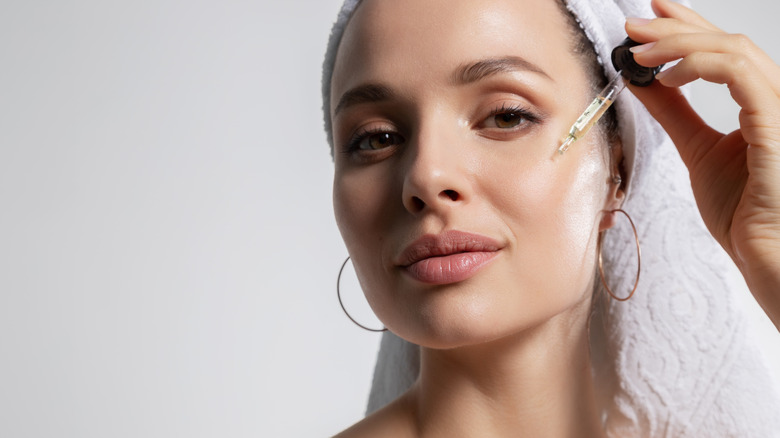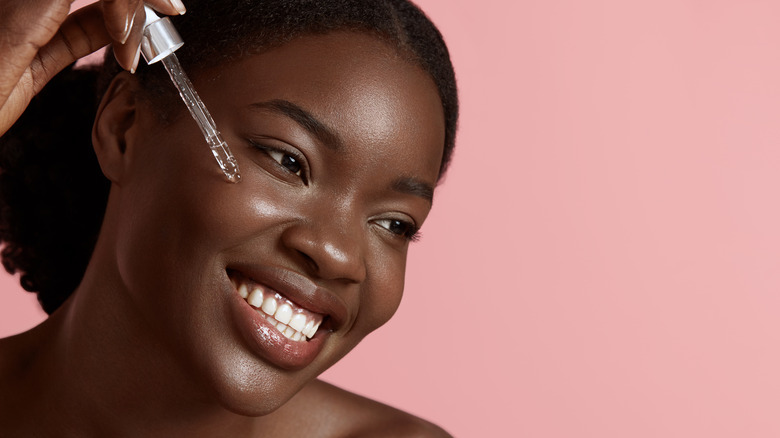AHA Vs BHA: Which Is Better For Acne-Prone Skin?
We may receive a commission on purchases made from links.
Sifting through skincare products and finding the perfect combination to treat your skin's specific needs can be tough, especially when you throw acne into the mix. The good news is that there are dedicated products meant to treat acne at the source, particularly exfoliators (via Good Face Project).
In the last decade, two popular types of acne-treating exfoliants have emerged. BHAs and AHAs are often raved about for their effective results in improving skin's texture using powerful ingredients (via U.S. Food & Drug Administration). Both work at sloughing off dead skin cells, but which one is better for sensitive acne-prone skin at the end of the day? We've busted common misconceptions floating around to narrow down the top choice between these two powerhouse treatments to help you find the one that's right for you.
And per Allure, just make sure that before diving into the world of exfoliators, you have sunscreen on hand to protect the skin because it's more susceptible to UV sensitivity.
AHAs and BHAs work in different ways
While the two acids seem similar, one might be better than the other, depending on what type of acne concern you're tackling. AHAs, also known as Alpha Hydroxy Acids, are made from ingredients like grapes and almonds to target dead skin cells at the surface, help fade away old acne scars, and combat fine lines (via Insider). Per Healthline, this makes them the perfect option if you're looking to keep acne at bay in the future because they unclog and tighten oversized pores to get rid of oil trapped in the skin. One common ingredient in AHAs, glycolic acid, helps shed the old layer of skin and can treat body acne (via Elle).
On the other hand, BHAs, or Beta Hydroxy Acids, work several layers below the skin's surface to draw out the oil that causes blackheads and whiteheads, revealing a smoother complexion (via Insider). Unlike the harsh ingredients used in acne treatments like benzoyl peroxide that irritate the skin, BHAs offer a gentler alternative by using salicylic acid, which acts as an anti-inflammatory (via Into The Gloss). They're also much better than an abrasive exfoliating scrub which causes micro-tears thanks to hydrating emollients that soothe even sensitive skin types (via Paula's Choice).
Ultimately, if you're actively combatting breakouts and want to smooth down bumps, zit-zapping BHAs can help. But if you're looking to fade away old acne scars and tighten pores, AHAs are your best bet.

